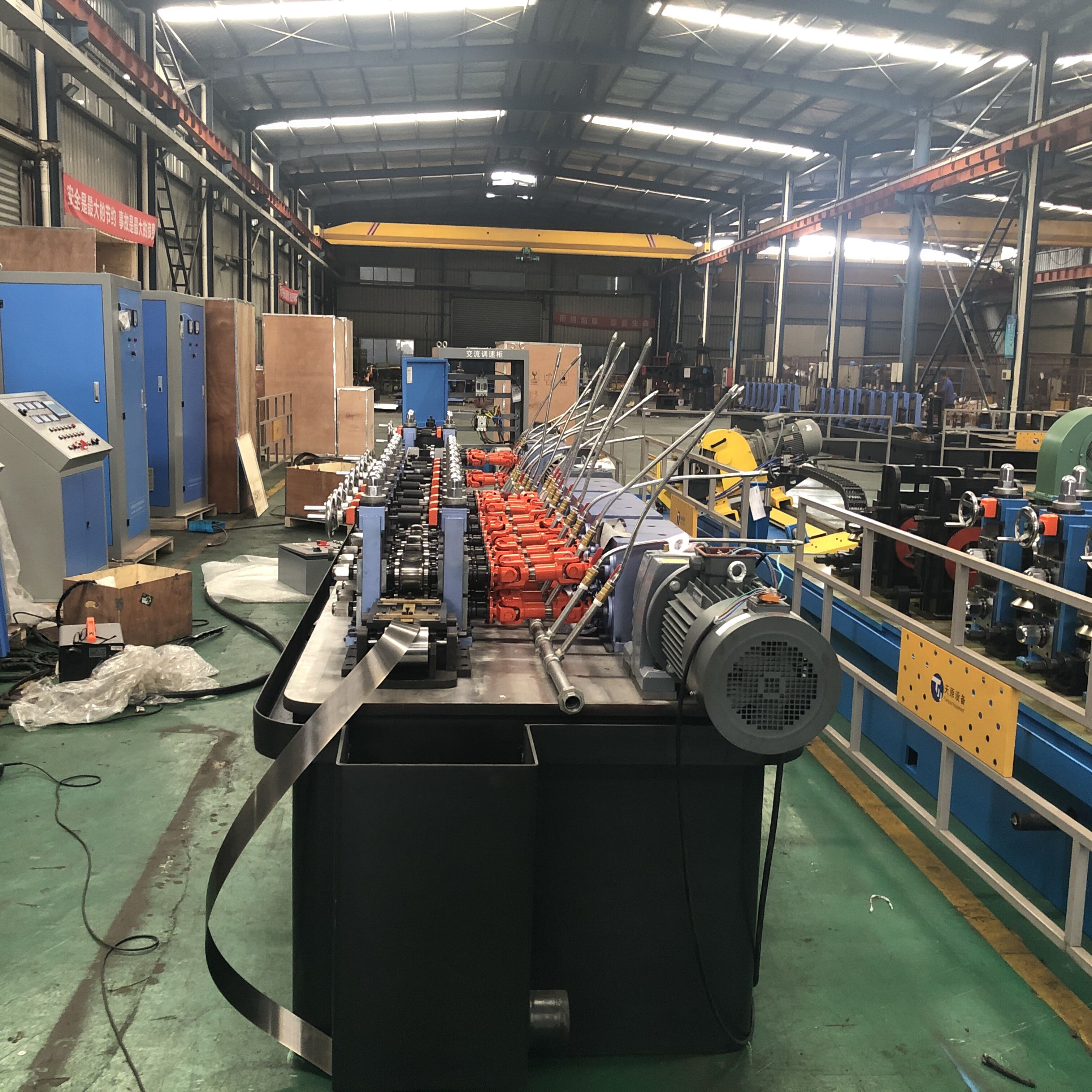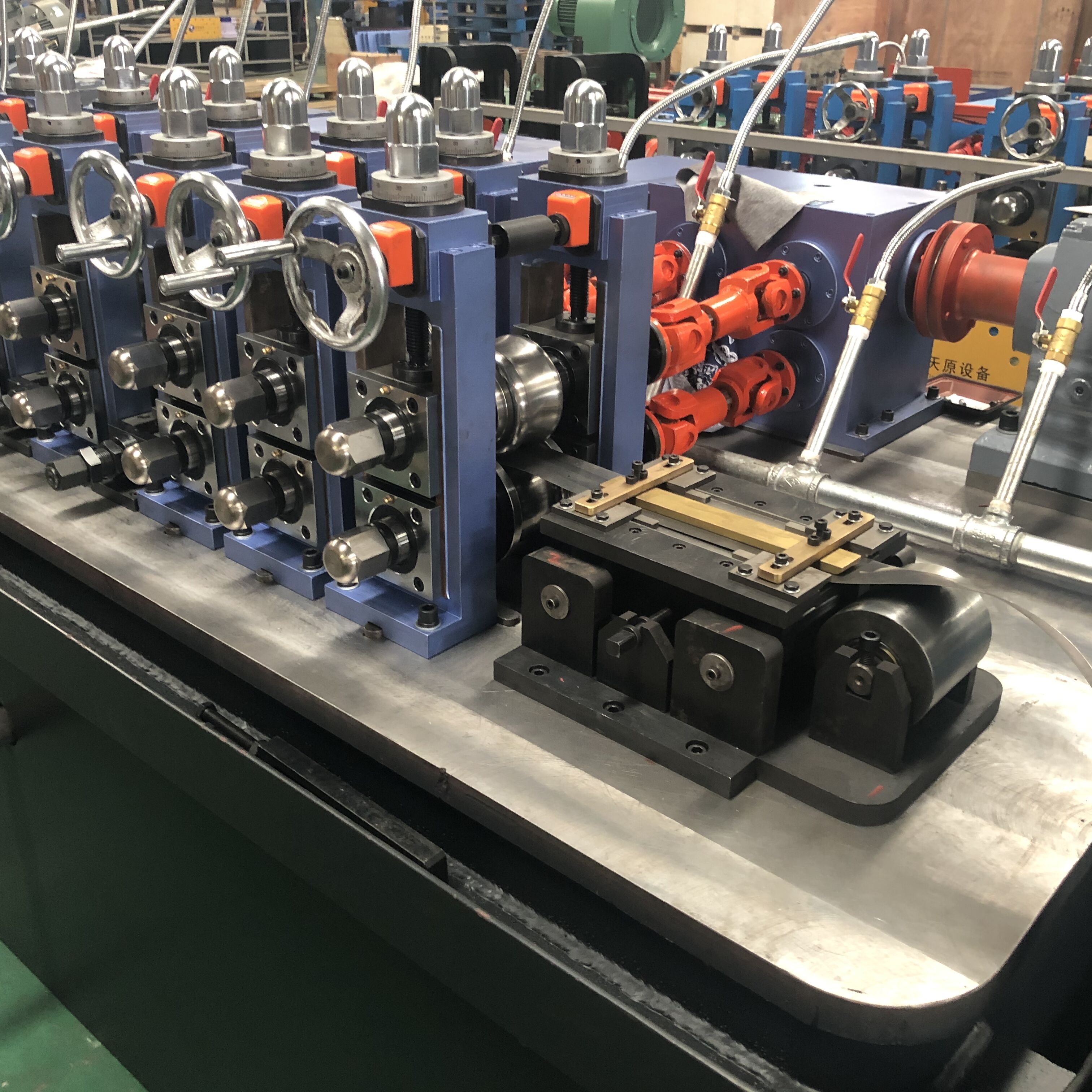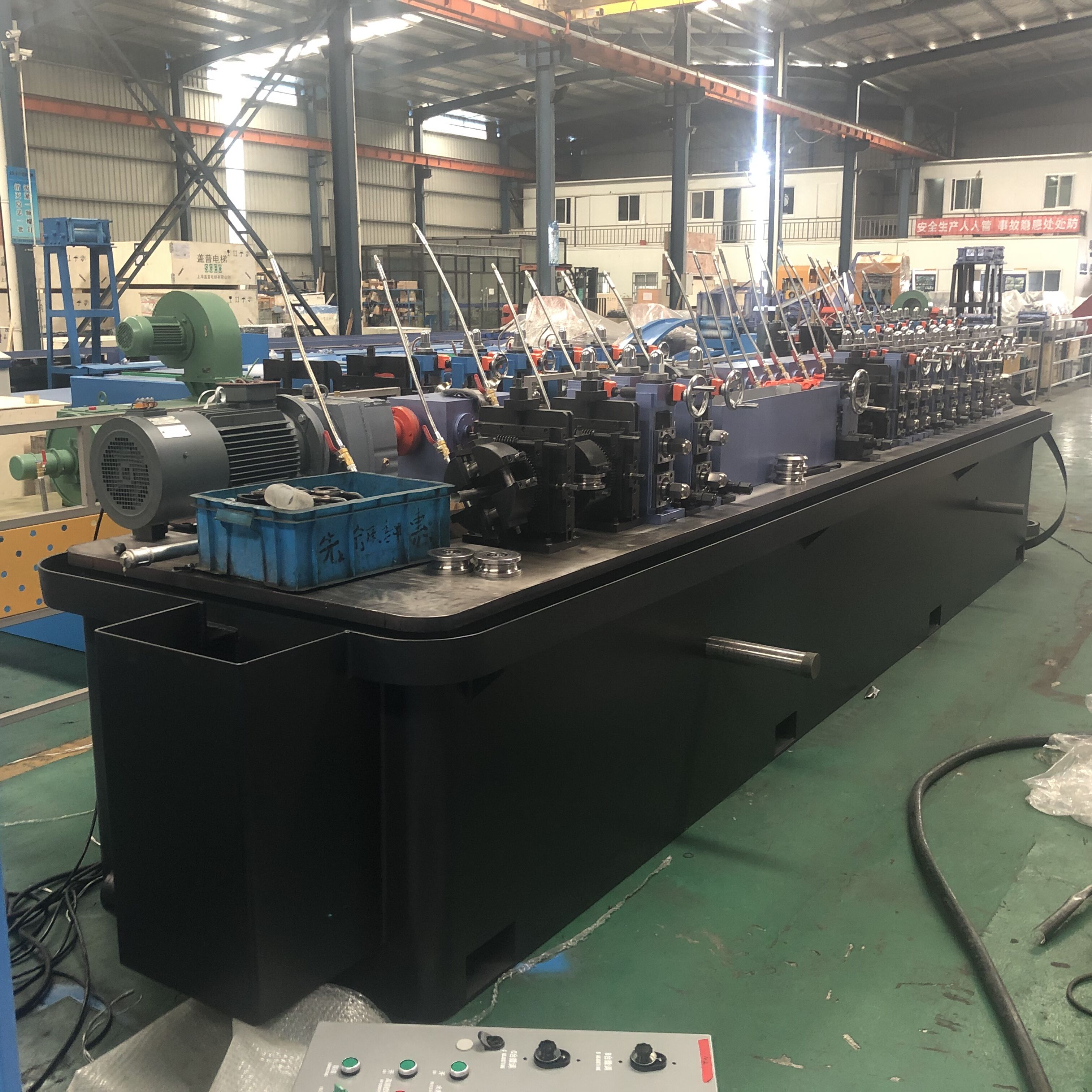արդյունավետ erw կանալի միլ
Ադամաց ԷՐՎ (Էլեկտրոնային Հավասարակշռված Դարձնում) պիպային միլը ներկայացնում է հիմնավոր գործարքային լուծում, որը նախատեսված է բարձրաորական դարձական արտադրանքների ստեղծում համար։ Այս առաջադրանքային համակարգը ինտեգրում է բարդ ձևափոխման, դարձնման և ավարտական գործողությունների անընդհատ արտադրանքային գործընթացում։ Միլը օգտագործում է էլեկտրոնային հավասարակշռված դարձնման տեխնոլոգիան՝ ստեղծելու համար ուժեղ, միասնական հատվածներ ստեղծող արտադրանքների մեջ, որոնք հարմարագույն են ապահովելու արտադրանքի համապատասխանությունը և վավերությունը։ Գործընթացը սկսվում է ստեղծողական գլուխերից, որոնք ճշգրիտ ձևափոխվում են տուբերի մեջ շարունակական գլանավորության շարքում, այնուհետև հայտնի է բարձր հաճախականությամբ դարձնումը՝ ստեղծելու համար անհատական միացում։ Միլի ավտոմատացված կառավարման համակարգերը պահպանում են խիստ չափանիշների սահմանափակումներ և դարձի որակը ամբողջ արտադրանքային գործընթացում։ Որակի կառավարման ստացիոնաները՝ ավանդակ տեստային համակարգերով՝ ներառյալ անականացումների տեստավորում և հոսանքի պրուֆիլի ստորագրություն, համոզված են, որ յուրաքանչյուր պիպան համապատասխանում է խիստ գործական ստանդարտներին։ Սահմանափակումները կարող են ներդրել տարբեր պիպային չափեր և պատվերի հաստատություններ՝ արտադրանքային տարբերակների համար տարբեր գործումներում՝ ներառյալ հյութի և գազի, կառուցումների և ինֆրաստրուկտուրայի զարգացում։ Նորագույն ԷՐՎ պիպային միլերը ներդրում են ավելացված էներգիայի արդյունավետության համակարգեր, նվազեցնում են նյութերի թարմացումը և ավելացնում են արտադրանքային արագությունը՝ համեմատաբար հասարակ պիպային արտադրանքային մեթոդների հետ։


